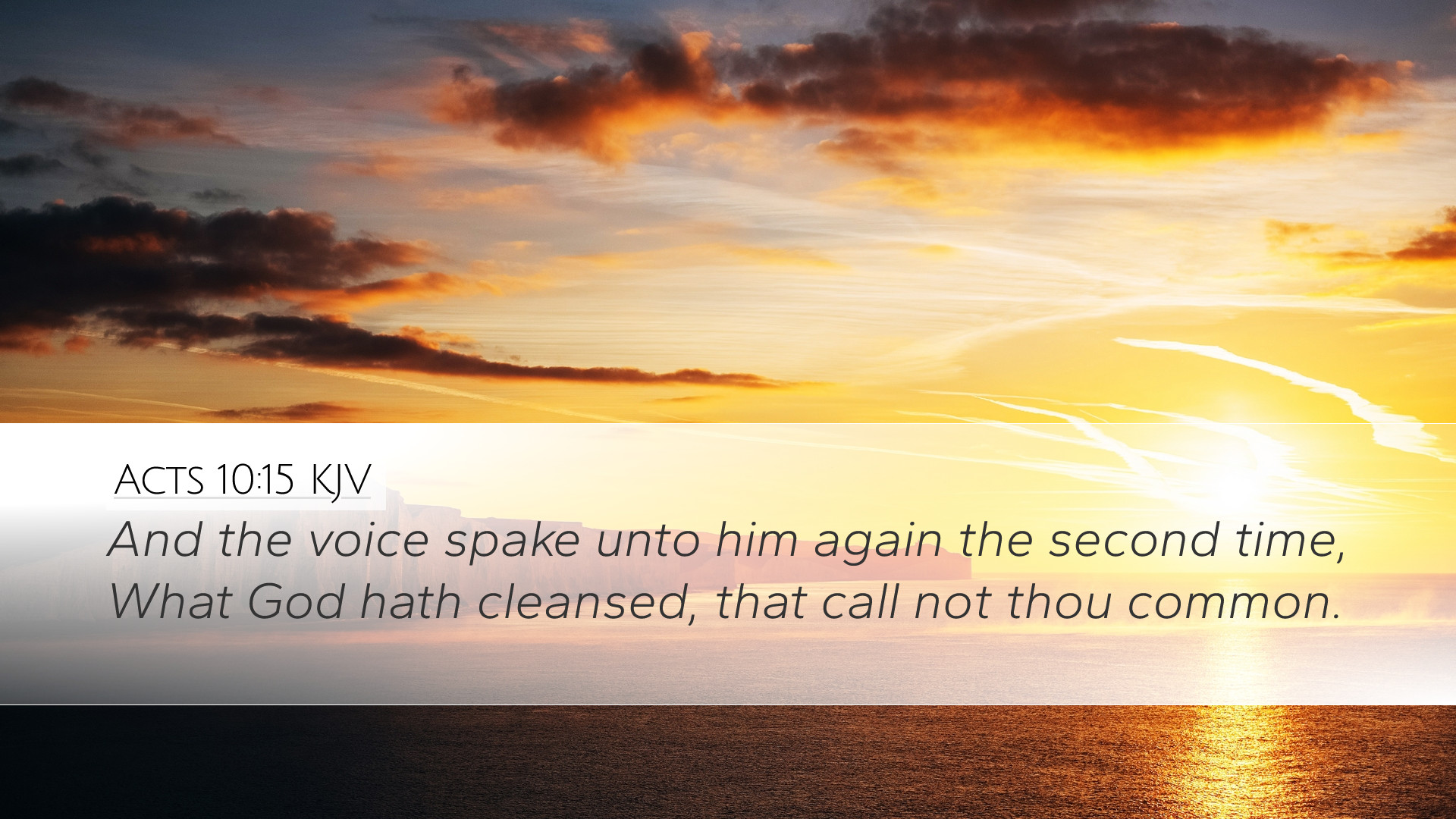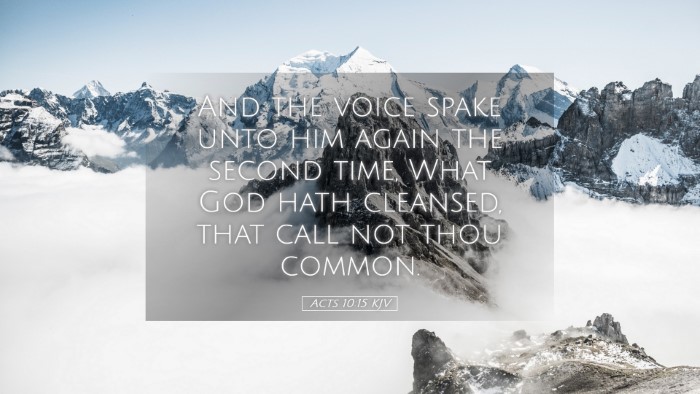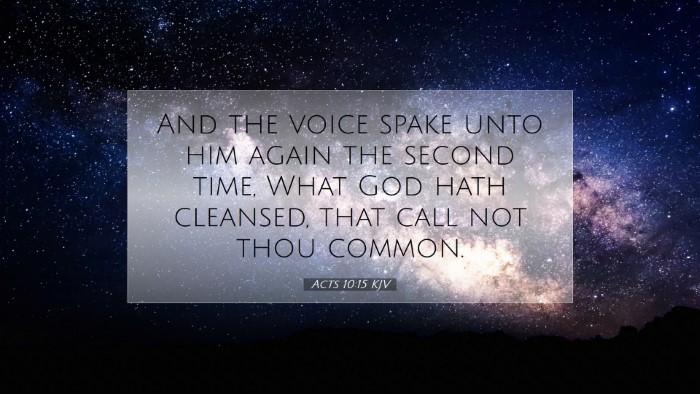Commentary on Acts 10:15
Acts 10:15 states: "And the voice spake unto him again the second time, What God hath cleansed, that call not thou common." This verse occurs within the broader context of Peter's vision, which serves a crucial role in the unfolding narrative of the early Church's outreach to Gentiles. Commentators have noted several theological and practical implications of this passage, touching upon themes of divine authority, the inclusion of Gentiles, and the overturning of traditional dietary laws.
Contextual Analysis
The narrative of Acts 10 centers on Peter and Cornelius, a Roman centurion, highlighting the pivotal moment when the Gospel began to be extended beyond Jewish boundaries. The voice from heaven is a powerful affirmation of God's redemptive plan, indicating a substantial shift in the understanding of cleanliness and holiness within the community of believers.
Significance of the Vision
Matthew Henry remarks that Peter's vision was essential for breaking down the barriers that had long kept Jews and Gentiles apart. The divine command to refrain from calling what God has cleansed as 'common' emphasizes God's sovereignty and initiative in the process of purification and acceptance, underscoring that no human tradition can nullify God's work.
Theological Implications
- Divine Cleansing: The term "cleansed" is pivotal, suggesting that God has the authority to purify and sanctify. Adam Clarke elaborates on this by indicating that this cleansing is not merely physical but spiritual, where God identifies the Gentiles equally as recipients of grace.
- Challenge to Tradition: This passage poses a direct challenge to long-standing Jewish dietary laws and cultural attitudes. Albert Barnes highlights that the early Church was grappling with the implications of grace that transcended traditional boundaries.
- Inclusion of the Gentiles: The vision is a precursor to the Gentile pentecost, signifying God's intention to include all nations in His salvific plan. Hence, this scripture lays a foundational doctrine for the universality of the Gospel.
Practical Insights for Ministry
This passage encourages pastors and church leaders to adopt a view that welcomes diversity in the faith community. The reconciliatory nature of the Gospel calls for actively breaking down barriers that may keep individuals from experiencing God's love. Furthermore, it challenges modern believers to reassess any prejudices that may inadvertently hinder the advancement of God's Kingdom.
Application in the Local Church
- Embrace Diversity: This text compels the Church to embrace diversity, recognizing that all believers—regardless of background—are equally accepted by God.
- Revising Cultural Norms: Churches are encouraged to examine cultural norms that may inhibit outreach, ensuring that they are not binding people under the weight of unbiblical expectations.
- Devotional Reflection: Leaders and congregants alike can reflect on God's cleansing power in their lives. It serves as a reminder of humility—none of us are inherently worthy, yet all are recipients of grace.
Conclusion
Acts 10:15 is a transformative verse that invites readers to consider the nature of God's grace, culminating in the expansion of His covenant community. In understanding this passage, ministers, students, and scholars alike are urged to recognize the implication of divine inclusivity—the belief that what God has cleansed should never be deemed unclean by human standards. This scripture remains vital for modern theological discourse and practice, emphasizing openness and receptivity to the leading of the Holy Spirit in advancing the mission of the Gospel.


